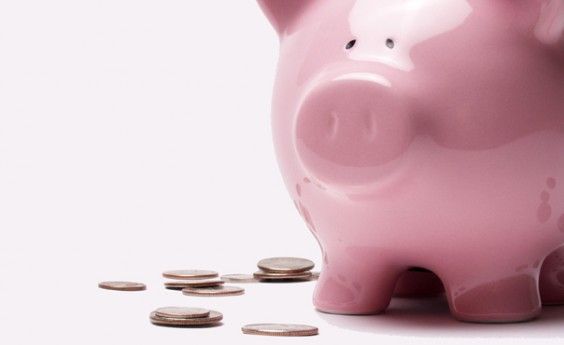We all know money can’t buy us love, at least according to the Beatles. But could money buy us happiness? New research suggests higher incomes may actually be associated with a more positive outlook on life The new stylized facts about income and subjective well-being. Sacks, D.W., Stevenson, B., Wolfers, J. Department of Business Economics and Public Policy, The Wharton School, University of Pennsylvania. Emotion 2012;12(6):1181-7.. Maybe it really is all about the Benjamins, baby.
Dolla Dolla Bills, Y’all — Why It Matters
For a long time, some experts believed in the “Easterlin Paradox,” or the idea that money could only make people happy up to a certain pointThe happiness-income paradox revisited. Easterlin, R.A., McVey, L.A., Switek, M., et al. Department of Economics, University of Southern California, Los Angeles, CA. Proceedings of the National Academy of Science 2010;107(52):22463-8.. After we start making a certain amount of money (about $75,000 in the U.S.), the thinking went, we sort of become immune to the happiness rush on paydayHigh income improves evaluation of life but not emotional well-being. Kahneman, D., Deaton, A. Center for Health and Well-Being, Princeton University, Princeton, NJ. Proceedings of the National Academy of Sciences of the United States of America 2010 Sept; 107(38): 16489-16493.. They also believed that well-being was only related to how much moolah we have in relation to other people’s incomes.
This latest research, a discussion paper from two professors and one grad student at the University of Pennsylvania, is basically a big slap in Easterlin’s faceThe new stylized facts about income and subjective well-being. Sacks, D.W., Stevenson, B., Wolfers, J. Department of Business Economics and Public Policy, The Wharton School, University of Pennsylvania. Emotion 2012;12(6):1181-7.. The authors make a few arguments that refute the old logic. First, people who live in rich countries have, on average, a higher well-being than people who live in poor countries. Second, even within the same country, wealthier people tend to have a higher well-being. And third, the more money people make over time, the happier they get. There doesn’t appear to be a satiation point, as Easterlin suggested. The only place where people don’t seem to get happier as they get richer is the U.S., and researchers say that’s possibly because of significant economic inequality in the states.
The findings are supported by similar research that suggests money actually can put a smile on someone’s faceRising Income and the Subjective Well-Being of Nations. Diener, E., Tay, L., Oishi, S. Journal of Personality and Social Psychology, 2012.Income, health and wellbeing around the world: Evidence from the Gallup World Poll. Deaton, A. Princeton University, Princeton, NJ. The Journal of Economic Perspectives, 2008; 22(2): 53-72.. One survey, distributed to more than 136,000 people in 132 countries, found that people in wealthier countries reported greater life satisfaction than those in developing countriesIncome, health and wellbeing around the world: Evidence from the Gallup World Poll. Deaton, A. Princeton University, Princeton, NJ. The Journal of Economic Perspectives, 2008; 22(2): 53-72..
Mo’ Money, Mo’ Happiness — The Answer/Debate
Of course, whether the source of satisfaction is a result of higher income (and the amenities it can buy) or simply life in a more stable environment is difficult to pinpoint. But in another more recent survey, U.S. citizens of different economic standings were asked to rate their emotional well-being and outlook on life. The results suggest that as income rises, so do feelings of comfort, well-being, and overall satisfaction amongst residents of the same country High income improves evaluation of life but not emotional well-being. Kahneman, D., Deaton, A. Center for Health and Well-Being, Princeton University, Princeton, NJ. Proceedings of the National Academy of Sciences of the United States of America, 2010 Sept; 107(38): 16489-16493..
Researchers believe that money can provide greater peace of mind, which in turn tends to make us happier. Someone who makes six-figures a year doesn’t necessarily have the same stresses as someone who makes minimum wage. Studies have also found that those with lower incomes are at higher risk for health problems such as cardiovascular disease and even marital issuesRacial/ethnic and socioeconomic disparities in health-related quality of life among people with coronary heart disease, 2007. Hayes, D.K., Greenlund, K.J., Denny, C.H., et al. Center for Disease Control and Prevention, Atlanta, GA. Preventing Chronic Disease, 2011 July; 8(4)..
It’s also possible that the relationship works the opposite way — happier people tend to make more money. One recent study found that happier adolescents were more likely to be big earners by age 29 than their Debby-Downer peersEstimating the influence of life satisfaction and positive affect on later income using sibling fixed effects. De Neve, J.E., Oswald, A.J. School of Public Policy, University College London, London, United Kingdom. Proceedings of the National Academy of Science, 2012;109(49):19953-8..
And there’s also the possibility that it’s not just about having money — but rather spending it — that can boost people’s moods. Regardless, if funds are low, it might be worth looking beyond the dollar for happiness. For some, that could mean spending quality time with family or friends, or making the effort to enjoy a favorite past time. Or, for an added dose of happiness, try saying something positive every day. Like love, optimistic words don’t cost a thing.
Originally posted by Leah Rocketto, August 2011. Updated January 10, 2013 by Shana Lebowitz.
Do you think money can buy happiness? Or are cheerier people more likely to be rich? Let us know your thoughts in the comments below or tweet the editor directly at @ShanaDLebowitz.

